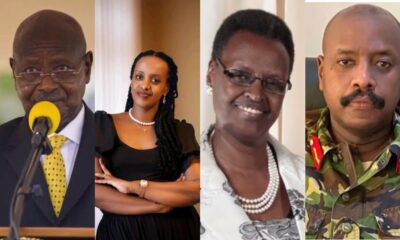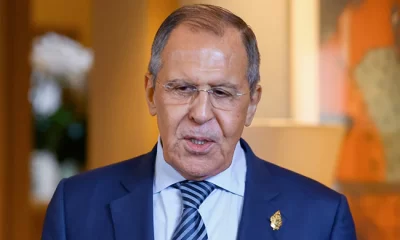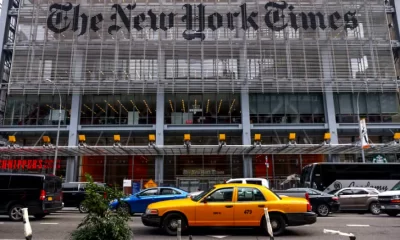Breaking News
Nigeria Risks Falling Behind in Digital Trade Without Urgent Reforms — WTO, World Bank Warn
The WTO and World Bank warn that Nigeria’s weak broadband infrastructure and regulatory gaps could hinder its digital economy growth. Experts, including Deputy Speaker Benjamin Kalu, stress urgent reforms in internet access, competition, and digital trade policies to keep Nigeria competitive globally.

The World Trade Organisation (WTO) and World Bank (WB) have cautioned that Nigeria’s weak broadband infrastructure and regulatory gaps could prevent the country from fully tapping into the billion-dollar opportunities of the global digital economy.
The warning was contained in a new report under the Digital Trade for Africa Project, jointly authored by the WTO Secretariat and the World Bank. The study assessed six countries—Nigeria, Benin, Côte d’Ivoire, Ghana, Kenya, and Rwanda—highlighting both challenges and opportunities in building competitive digital trade systems.
While commending Nigeria for its progress in expanding digital infrastructure, the report noted that internet access remains “highly uneven,” especially between urban and rural areas. It stressed the urgent need to expand fibre optic infrastructure, improve last-mile connectivity, and strengthen competition in the telecommunications sector to enhance affordability and service quality.
Deputy Speaker of the House of Representatives, Benjamin Kalu, backed the findings, warning that any delay in addressing broadband gaps would leave Nigeria trailing behind global competitors.
“The world has already moved in this direction, and any delay risks leaving us behind while others surge ahead,” Kalu said.
The report further revealed that Nigeria’s digitally delivered services—particularly in finance and insurance—experienced fluctuations between 2019 and 2021 but have since grown steadily, signaling deeper integration into global digital markets.
Despite these gains, Nigeria still lags behind Ghana in digital trade but remains ahead of several ECOWAS peers, pointing to strong long-term potential.
Nigeria has ratified the WTO’s Trade Facilitation Agreement (TFA) and committed to the General Agreement on Trade in Services (GATS), including in telecommunications. It is also part of two WTO rule-making initiatives: the Agreement on Electronic Commerce and the Investment Facilitation for Development Agreement.
However, the report cautioned that Nigeria has yet to bind its trade regime for key digital services such as computer, postal, and distribution services, nor has it eliminated tariffs on IT goods under the WTO’s Information Technology Agreement (ITA).
On regulation, Nigeria has made progress in data protection and cybersecurity, but the report flagged policy gaps in areas including online consumer rights, electronic transactions, e-signatures, and platform liability.
The report concluded: “Nigeria has the foundations to leverage digital trade as a pillar of economic growth, however, without urgent reforms in infrastructure, regulation, and competition, the country risks leaving its digital goldmine untapped.”
Speaking at the WTO–Inter-Parliamentary Union (IPU) Steering Committee session in Geneva, Kalu stressed that parliament must take the lead in driving reforms.
“Trade is no longer what it used to be. Globally, the marketplace has gone digital. Relying solely on traditional trading systems will not deliver the economic value we seek,” he said.
Kalu, who represents Nigeria on the WTO–IPU Steering Committee, added that parliament’s role is crucial in creating laws, advocacy, and public awareness. He also called for continental synergy under the African Continental Free Trade Area (AfCFTA), warning that isolation would weaken Africa’s collective digital future.
“This is the gap we must bridge—and it is the role parliament must play to drive digital trade and Africa’s economic future,” he emphasized.










